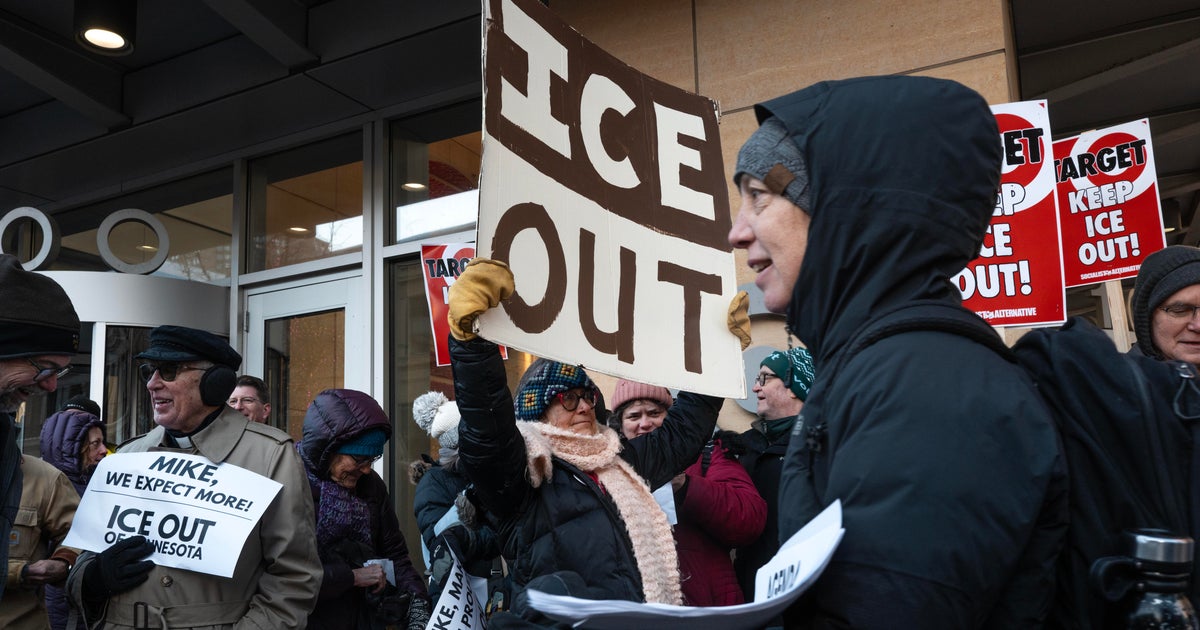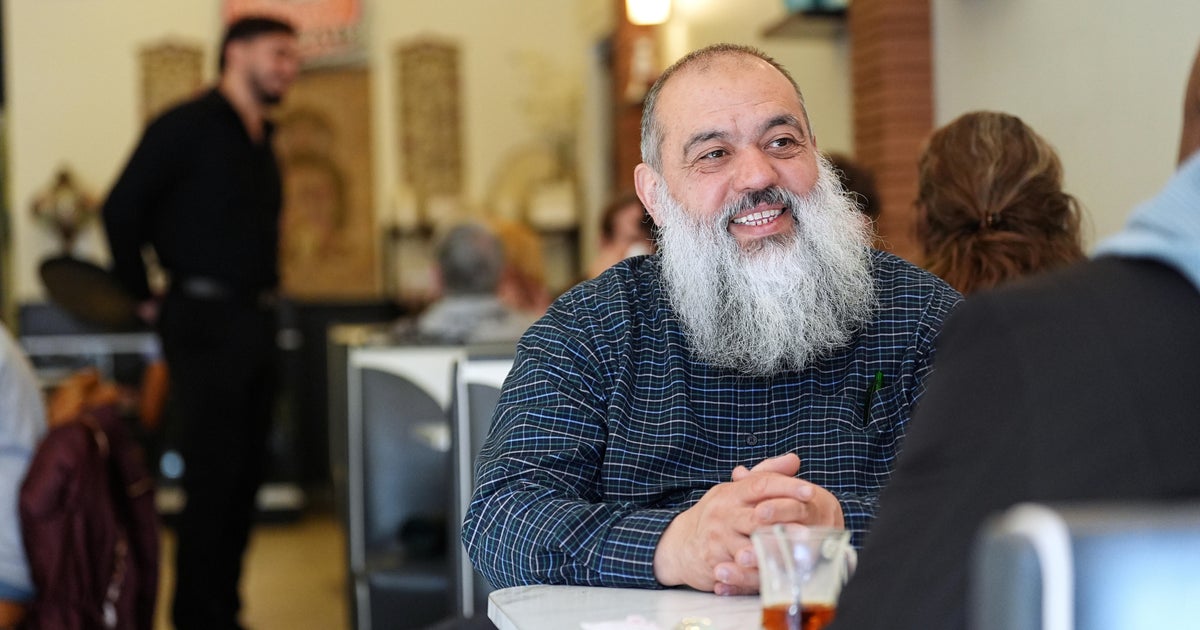Grand juries: How do they work?
Why is Mueller's decision to use a grand jury a big deal?
Here's what we know, as of last week: Special Prosecutor Robert Mueller, the man tasked with leading the investigation into Russian interference, is using a grand jury in Washington, D.C. And he's hired a lot of prominent lawyers to work on his team, including experts in white-collar crime and national security.
These are all newsworthy developments because it shows that Mueller's investigation is ramping up, not slowing down, which means he thinks there's something to the case. According to Renato Mariotti, a former federal prosecutor, the use of a grand jury "means that Mueller believes there is sufficient evidence that a crime was committed to warrant a criminal investigation."
"It confirms what we already suspected—that this is a criminal investigation, not just a counter-intelligence investigation," Mariotti told CBS News.
On the other hand, as Georgetown Law professor Julie Rose O'Sullivan points out, it's not really surprising that Mueller as turned to a grand jury.
"It is actually not a big deal—for people in the white-collar crime field it was totally expected," O'Sullivan, a former federal prosecutor who worked on the Whitewater investigation into President Bill Clinton, told CBS News. "In such cases, often the only way to get the documents and electronic and other records one needs is with grand jury subpoenas. And although witnesses can decline to talk to federal agents, they cannot refuse to testify before the grand jury unless they have a valid claim to a Fifth Amendment privilege against compelled self-incrimination or other privilege."
What is the function of a grand jury?
"A grand jury is an important tool that allows prosecutors to issue subpoenas that require people to produce documents and other evidence," Mariotti explains. "Subpoenas can also be used to compel people to testify under oath before the grand jury."
Additionally, the he grand jury is also supposed to serve as a check on federal prosecutors. "Grand juries first ensure that no one is indicted for a federal felony without proof by the government that there is probable cause to believe that he or she committed a crime," O'Sullivan says.
Can this grand jury deliver an indictment? How likely is that to happen?
"This grand jury can return an indictment, but the mere fact that a grand jury is impaneled does not mean there will be an indictment, although most federal criminal investigations result in someone being indicted," Mariotti says.
"Indictments are usually sought at the very end of an investigation, and grand juries are typically impaneled at the very beginning of an investigation. So it's unlikely that an indictment will be returned soon. It's too early to tell whether indictments will be issued…Only a grand jury can issue an indictment, which is the only way that someone can be charged with committing a felony according to the Constitution."
But when federal prosecutors do request an indictment, grand juries tend to deliver.
"There's an old saying that a grand jury would 'indict a ham sandwich' if a prosecutor asked, because no opposing lawyer is present," Mariotti says. "Another reason that grand juries tend to return indictments when prosecutors present them is because prosecutors need to have proof 'beyond a reasonable doubt' and grand juries only have to consider a much lower standard, called 'probable cause.'"
According to Sullivan, "the statistics prove that most grand juries indict when asked—but it is difficult to know whether that is because the grand jurors are overly compliant or because prosecutors, fearing a declination, are disciplined in proving probable cause."
Who are the people who sit on this grand jury?
It's just a bunch of everyday American citizens, and they're picked from the same pool as regular trial jurors. "Grand jurors are ordinary citizens who agree to serve on a regular basis, typically once a week," Mariotti says.
But because grand juries tend to take more time than regular trial juries, they are often excused if their responsibilities at home or work take preclude them from participating for a month or more. "In my experience, many grand jurors are retired or unemployed," O'Sullivan says.
How many of them are there, and how are they picked?
"There are 16 to 23 grand jurors at random and vetted by the federal district court," Matiotti says. "Unlike a trial, there is no one from the defense asking questions or striking jurors that the defense dislikes."
Without a defense attorney present to screen jurors, vetting them falls to the court and the prosecution for what O'Sullivan calls "bias or other disqualifying circumstances."
Does it matter that this is a Washington, D.C. grand jury given the district's left-leaning population?
Washington voted overwhelmingly for Hillary Clinton in November, with exit polls showing that roughly nine in ten district voters pulling the lever for the Democratic nominee. Some Trump defenders, such as former House Speaker Newt Gingrich, have tried to insinuate that this means the jury will be biased against President Trump and his associates.
But will this actually matter? It's hard to predict, says O'Sullivan, given how many people tend to ignore jury summons altogether.
"If you check the statistics, I think you will find that many, many citizens called to jury duty ignore the summons," she says. "Generally, only those who care about complying with law or civic responsibility show. I'm not sure what that that sub-group's political affiliations or political biases might be."
The inherently political nature of the case also makes it difficult to say how jurors will act. "I have seen cases in which a special grand jury came to be identified with prosecution team and was very pro-prosecutor," O'Sullivan says. "But if you look at the grand jury minutes from the Lewinsky investigation…you will see that the grand jury appeared to be hostile, at least in some instances, to [independent counsel] Ken Starr's prosecutors and so more defense oriented."
And if Muller's investigation leads him to possible crimes that were committed outside Washington, he may need to find a new grand jury to use.
"Because the grand jury is based in D.C., that means that any indictment returned by the grand jury has to concern crimes that have a significant connection to Washington D.C.," Matiotti says. "If Mueller uncovers a crime that is not connected to D.C., he will have to present evidence before a grand jury in another jurisdiction to obtain an indictment there, unless the crime is part of a broader conspiracy that is connected to D.C."
In any event, the location probably doesn't matter that much given how friendly grand juries tend to be to prosecutors.
"It doesn't really matter that the grand jurors are in D.C. because any grand jury would very likely return an indictment presented by a prosecutor," Mariotti says.



